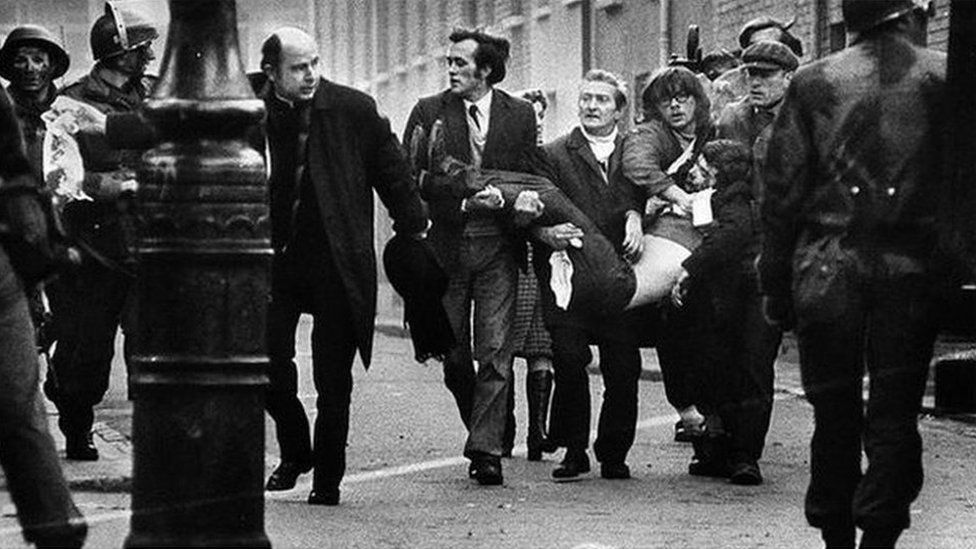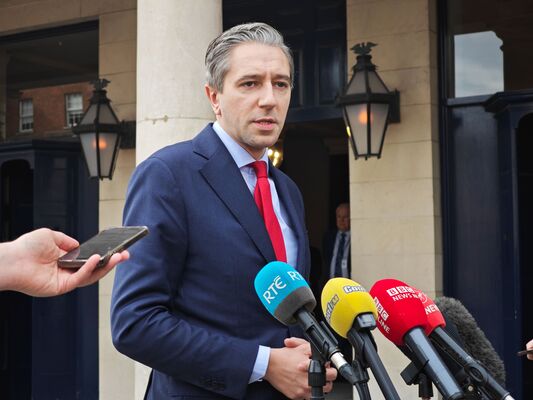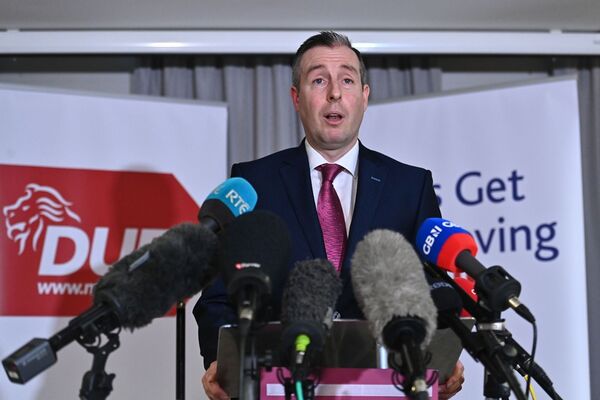SOMETIMES you wonder if the clever British are playing a game the rest of us don’t get. We think the ground on which we stand is rock-solid, then the British pull the trapdoor beneath our feet and we’re left swinging in the wind.
The Legacy Bill, currently weaving its way towards enactment, is as good an example as any. When/if it is enacted, it will end all inquiries into what happened during the Troubles. “Drawing a line under the past," it’s called. And while the Bill is getting a bit of a bashing in the House of Lords, there’s virtual certainty that the House of Commons will pass it into law.
This next bit may seem off the topic but bear with me. Remember when the British – actually the English – dragged NEI out of the EU against the will of the majority? There was one party that went along with Brexit, in fact campaigned for Brexit, and that was the DUP.
But in relation to this Legacy Bill, all of the political parties here, including the DUP, are opposed to it. Those whose lives have been shattered are opposed to it. In short, everyone here is opposed to the close-down of Troubles-related investigations, but the British Government apparently doesn’t care. It’s going ahead.
Why? Because the electorate in Britain don’t like the idea of former members of the British armed forces being dragged from their place of retirement and prosecuted for what they did during the Troubles. In contrast, the political parties and the general population of NEI want truth and, if possible, justice to be done in terms of their victim relatives.
One case will be opened to public inquiry and that is the events in Omagh on August 15, 1998, when 31 people, including unborn twins, were killed by a massive bomb. A public inquiry will be launched into what happened and why, on the grounds that it happened after the Good Friday Agreement and so isn’t restricted, as are other cases, by the Legacy Bill.
So it looks like the people of Omagh will get that which they’ve campaigned for over so many years: full disclosure of what happened and why, on that fateful day. Unfortunately, this is where Britain starts sliding the trapdoor bolt. There have been repeated claims that an informer was involved with the Real IRA gang which brought the bomb to Omagh. Baroness Nuala O’Loan only last week said that she believed the slaughter in Omagh could have been prevented. We know that a phone call to the RUC warned of an unspecified but violent act in Omagh on August 15. Only someone with inside information about the Real IRA’s intentions could have made that call.
So it seems as though the ‘security forces’, overt or covert, will not come out of the Omagh inquiry looking very good. But don’t underestimate the British. Cast your mind back to another inquiry – the Saville inquiry into Bloody Sunday. Has any soldier been tried, let alone convicted, of any of the fourteen deaths on that fateful Sunday? A hugely expensive, long-running inquiry was held, and no paratrooper has been brought to justice.
Even more important, no commanding officer has been tried or convicted. I watched my old classmate Eamonn McCann on a video-tape last week, speaking in front of a mural with a painting of Colonel Mike Jackson, with the title ‘War Criminal’ above it. And eloquent though Eamonn was, and thorough as the Saville inquiry may have been, neither Jackson nor any senior figure has been put on trial.
This is where you get your British trapdoor moment. You say you want an inquiry into Bloody Sunday or the Omagh bomb? Of course we’ll grant it to you. But never think for a moment we’re going to punish any state forces or their masters who might have been involved in the bloodshed of that day.
So it’s either an inquiry is held but those truly responsible walk away whistling, or an inquiry is not held, because we’ve just passed a law that says such inquiries into events before 1998 will not be allowed. Either way, the trapdoor springs open and the victims and their families are left to twist in the wind.








